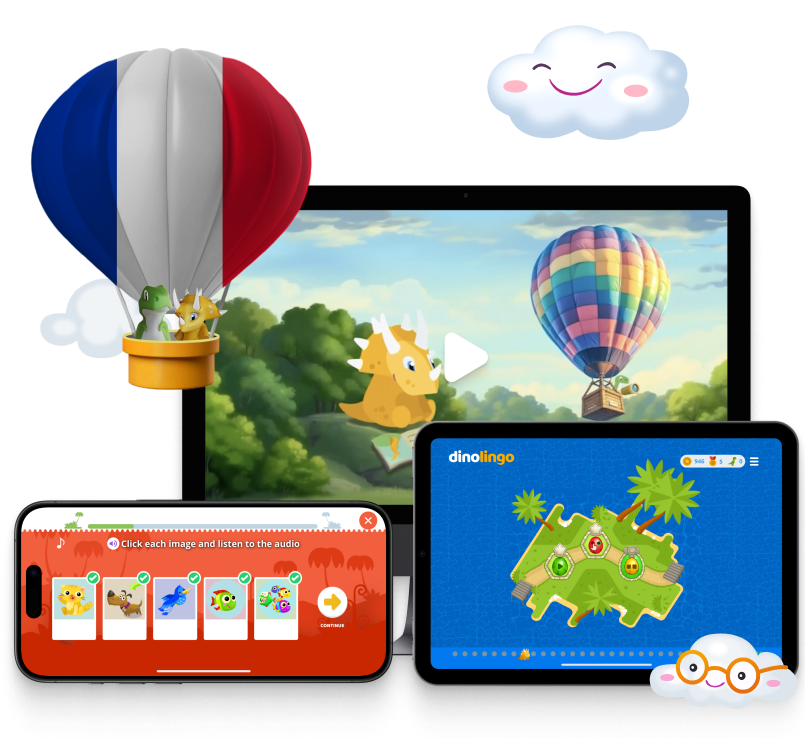The Power of French—From Versailles to the World Stage
From the salons of Paris to the halls of the United Nations, the French language holds a powerful place in both romantic imagination and global leadership. But what makes French so special? Let’s explore its role across art, science, diplomacy, and beyond. Learning French today means more than memorizing verbs, it’s a passport to culture, creativity, and connection around the globe.
French as the Language of Romance and Diplomacy
The French language is often celebrated as the language of romance due to its fluid, melodious sound that has charmed listeners worldwide. This characteristic, combined with a rich literary tradition featuring poets like Charles Baudelaire and novelists such as Marcel Proust, reinforces its romantic reputation. French’s role in diplomacy is equally storied, historically serving as the preferred language in European diplomatic courts and international treaties. Today, it remains a procedural language in the European Union and a primary language in international courts like the International Court of Justice, highlighting its enduring presence in global diplomacy.
Platforms like Dinolingo make French accessible and fun for young learners by combining songs, games, stories, and real-life vocabulary. These tools help children not only learn the language but also appreciate its cultural context from an early age.
Official Status Across Multiple Continents
French holds official language status in over two dozen countries, making it a significant linguistic bridge across continents. In Africa, French plays a crucial role in both public and private sectors, acting as the lingua franca in countries such as Gabon, where it is spoken by nearly 80% of the population. In Europe, countries like Belgium and Switzerland feature large Francophone populations, using French for government, education, and daily communication. North America’s linguistic landscape is also shaped by French, particularly in Canada, where it is one of the two official languages and is the primary language spoken in Quebec and significant communities in Ontario and New Brunswick.
Role in International Organizations
French’s importance extends into major international organizations. As one of the working languages of the United Nations, French is used for official documents and speeches. It also holds a significant place in non-governmental organizations such as Médecins Sans Frontières (Doctors Without Borders) and the International Olympic Committee, facilitating broad multinational collaboration and policy-making.
Contributions to Literature and the Arts
French literature offers some of the most profound explorations of human experience and thought. Victor Hugo’s “Les Misérables” not only challenges the socio-political climate of 19th-century France but also showcases the linguistic prowess of the French language with complex sentences like the notable 823-word passage. French cinema, too, plays a pivotal role in the arts, with the French New Wave revolutionizing global film aesthetics and narratives in the 1950s and 1960s.
Linguistic Influence and Borrowing
The influence of French extends into other languages through numerous loanwords that enrich their lexicons. English speakers encounter French in everyday terms such as “rendezvous” (meeting) and “bouquet” (flowers), reflecting centuries of cultural and linguistic exchange. French phrases are also prevalent in international law, culinary arts, and ballet, areas where precision and tradition are conveyed through the original French terms.
Educational Impact and Cultural Exchange
French is not only a subject in academic curricula worldwide but also a bridge to understanding Western philosophy and thought. Educational programs often emphasize the ability of French to open doors to prestigious universities and intellectual circles, particularly in France, Belgium, and Switzerland. Cultural exchanges and immersion programs are facilitated by institutions like the Alliance Française, which promotes French language and culture around the globe.
Scientific and Technological Contributions
In science, French remains influential in publishing research, especially in the fields of medicine and engineering. Historically, the French Academy of Sciences has been a pivotal institution, with members like Louis Pasteur contributing groundbreaking work. In technology, French companies and engineers have been at the forefront of aerospace and telecommunications, showcasing the language’s utility in technical and academic discourse.
The Future of French in the Digital Era
Looking forward, French is adapting to the digital age, with an increasing presence on the internet and in multimedia platforms. This adaptation not only ensures that French remains relevant but also that it continues to grow as a tool for global communication. Online platforms and social media offer new avenues for French to influence global culture and communication, ensuring its role in shaping the digital landscape.
Conclusion
French remains one of the most influential languages in the world, owing to its official status in multiple countries, its role in global diplomacy and international organizations, and its profound contributions to the arts, science, and technology. Its rich literary heritage and widespread use in diplomatic communications continue to uphold its status as a key player in global affairs.
Whether you’re just beginning your language journey or encouraging a child to explore the world, French offers a beautiful and practical pathway into culture, connection, and creativity. With tools that make learning enjoyable and accessible, there’s never been a better time to fall in love with French—one word at a time.
Start Learning a New Language Today!
Best Language App for Kids.
7-day free trial. Then only $19/month. Cancel anytime.

